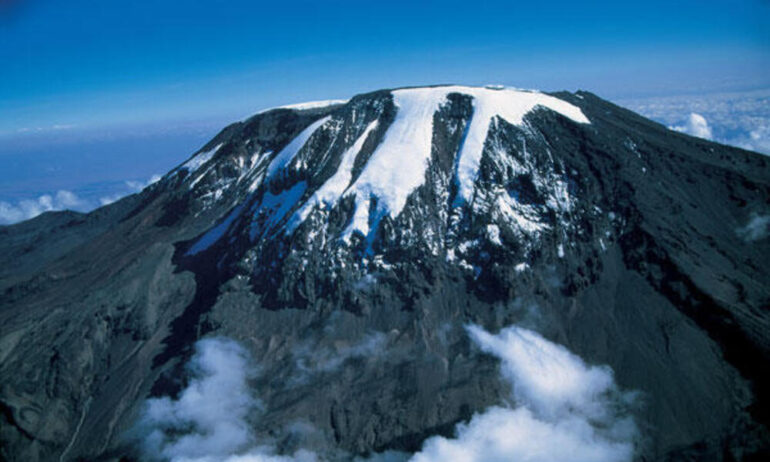Making the World Heritage List from UNESCO, the United Nations’ educational, scientific and cultural organization, is a kind of gold seal of approval in the tourism world. The list, which began in 1978, has more than 1,150 sites nominated by their host nations and includes tourist destinations like the Great Wall of China, the Great Barrier Reef in Australia and the Central Amazon Conservation Complex in Brazil.
It also features some of the world’s most-famous and most-visited glaciers, including those in Yosemite National Park. But according to a report released by the agency last week, a third of them are expected to disappear by 2050 because of climate change.
The glaciers that are likely to disappear include the last remaining ones in Africa, in Kilimanjaro National Park and on Mount Kenya, those on the Pyrenees’ Mont Perdu, which spans the borders of France and Spain, and in Italy’s Dolomites.
The report, released days before the U.N.’s COP27 climate change conference is set to begin in Egypt, posed a challenge to the travel industry, which is a large contributor to global carbon emissions, with a footprint estimated between 8 and 11 percent of total greenhouse gases, according to the World Travel & Tourism Council, or W.T.T.C. Aviation represents around 17 percent of total travel carbon emissions.
The report was a stark reminder of the critical role the travel industry plays in preserving sensitive sites and reducing carbon emissions, said James Thornton, the chief executive of Intrepid Travel, a travel company that specializes in sustainable travel and that organizes journeys to many of the glaciers named in the report.
“It’s very much a wake up call,” he said. “The key message is that ultimately for the travel industry there is no vaccine for climate change. We must take urgent action to rapidly decarbonize.”
Fifty of UNESCO’s World Heritage sites are home to glaciers, and 18,600 glaciers have been identified at those sites. One third of the glaciers in these sites are “condemned to disappear by 2050,” according to the report.
“These are projections,” said Tales Carvalho Resende, a UNESCO researcher from Brazil and one of the authors of the report. “We hope we are wrong, of course, but these are projections based on hard science.”
The glaciers will disappear regardless of any “climate scenarios,” he said. But the remaining two-thirds of the glaciers in the World Heritage sites could still be saved if global warming is limited to 1.5 degrees Celsius or 2.7 degrees Fahrenheit, according to the report.
The glaciers on the list are losing 58 billion tons of ice a year, an amount equivalent to the combined annual water use of France and Spain, according to UNESCO. The melting is responsible for nearly 5 percent of observed global sea-level rise, according to the study.
Enormous declines in the price of renewables and a global political mobilization have led scientists to conclude that warming this century will most likely fall between two or three degrees, far below the catastrophic projections of four to six degrees that were once made. But limiting global warming to 1.5 degrees is highly unlikely and even one or two more degrees of warming will lead to more extreme weather, environmental disruption and suffering for millions of humans.
Still, Mr. Resende said, the UNESCO report shows that the travel industry can play an enormous role in preserving World Heritage sites and helping change traveler behavior.
He pointed to a 2019 ban forbidding tourists from climbing Uluru, a giant monolith in Australia that is sacred to the Anangu, an Aboriginal group that is the custodian of the rock. The ban, which came after decades of campaigning by the Anangu people, has largely been respected by tourists and has given park rangers time to maintain the flora and fauna at Uluru-Kata Tjuta National Park, a World Heritage site.






